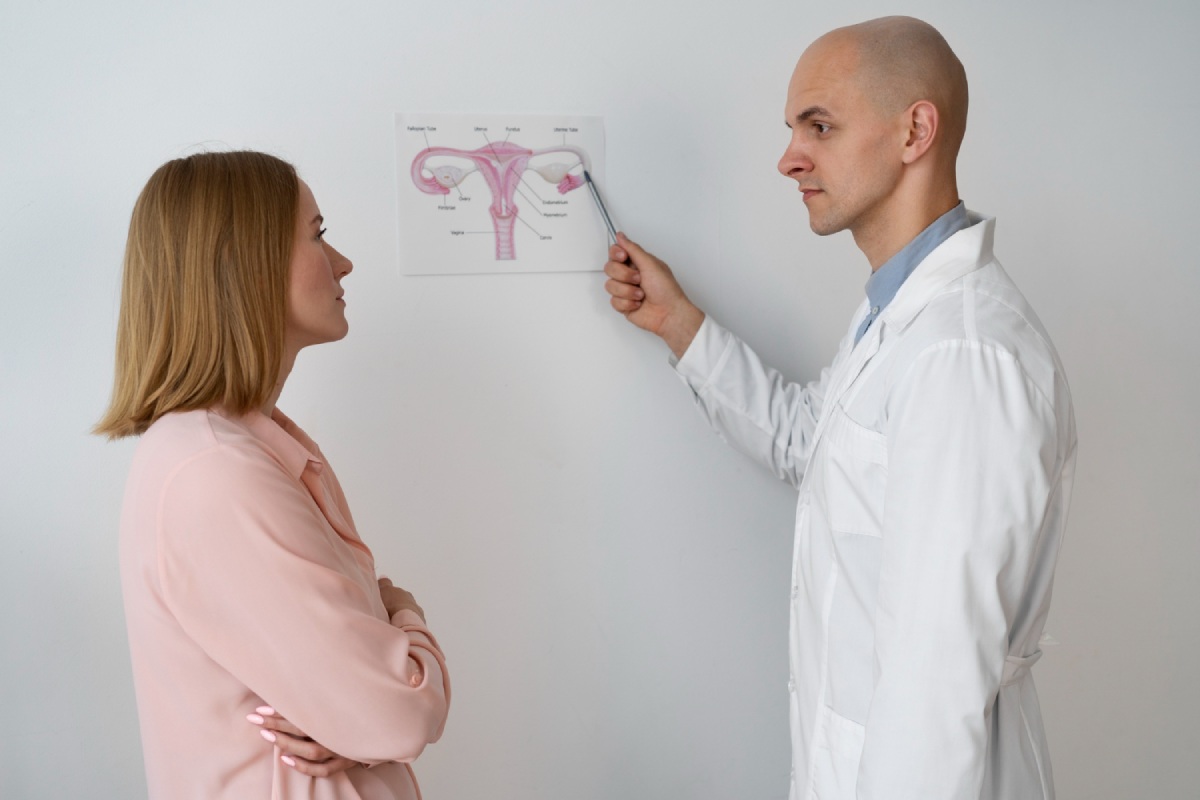
What Are Ovarian Cysts Signal? Understanding Their Implications
Ovarian cysts are a common occurrence among women, often presenting without any noticeable symptoms. While most cysts are benign and resolve on their own, some may signal underlying health issues that require attention. Understanding the signals and implications of ovarian cysts is crucial for timely diagnosis and appropriate management.
Before diving into their signals and implications, it’s essential to comprehend what ovarian cysts are. Ovarian cysts are fluid-filled sacs that develop on the ovaries, the almond-sized organs on either sides of the uterus. These cysts can form during the menstrual cycle and typically dissolve on their own without causing any symptoms. However, in some cases, they may grow larger or cause complications.
If you are facing any of these you may want to get tested for Ovarian Cyst:
1. Pain or Discomfort: One of the primary signals of ovarian cysts is pelvic pain or discomfort. This pain may vary in intensity and can occur on one side or both sides of the pelvis. It may be dull and persistent or sharp and intermittent.
2. Irregular Menstrual Cycles: Ovarian cysts can disrupt the normal menstrual cycle, leading to irregular periods. Women may experience heavier or lighter bleeding than usual, or their periods may become irregular or unpredictable.
3. Bloating or Abdominal Swelling: Some women with ovarian cysts may experience bloating or a sensation of fullness in the abdomen. This bloating can be persistent and may worsen with physical activity or at certain times during the menstrual cycle.
4. Difficulty Emptying the Bladder or Bowels: Large ovarian cysts can exert pressure on nearby organs, such as the bladder and bowel, leading to difficulty emptying them. This may result in increased frequency of urination, constipation, or difficulty passing stools.
5. Pain During Intercourse: Ovarian cysts can cause pain or discomfort during sexual intercourse, particularly if they are large or if there is inflammation or irritation of the surrounding tissues.
6. Nausea or Vomiting: In some cases, ovarian cysts may cause nausea or vomiting, especially if they become twisted or ruptured, leading to complications such as ovarian torsion or internal bleeding.
Implications of Ovarian Cysts:
1. Ovarian Torsion: When an ovarian cyst causes the ovary to twist, it can cut off its blood supply, resulting in a condition called ovarian torsion. This is a medical emergency that requires prompt surgical intervention to prevent damage to the ovary.
2. Infertility: While most ovarian cysts do not affect fertility, certain types, such as endometriomas or cysts associated with polycystic ovary syndrome (PCOS), may interfere with ovulation and reduce fertility. In some cases, surgical removal of the cysts may be necessary to improve fertility.
3. Malignancy Risk: Although rare, some ovarian cysts may be cancerous. Certain characteristics, such as rapid growth, solid components, or abnormal features on imaging tests, may raise suspicion for ovarian cancer. Women with these findings may require further evaluation, including biopsy, to rule out malignancy.
Seeking Medical Evaluation:
Given the potential implications of ovarian cysts, women need to seek medical evaluation if they experience persistent or concerning symptoms. A healthcare provider can perform a pelvic examination and order imaging tests, such as ultrasound or MRI, to assess the size, location, and characteristics of the cysts.
Depending on the findings, further evaluation or treatment may be necessary. Small, asymptomatic cysts may require monitoring, while larger or symptomatic cysts may warrant treatment, such as hormonal therapy or surgical removal.
While ovarian cysts are frequently benign and may resolve without intervention, they can occasionally indicate underlying health concerns or result in complications. Recognizing the signs and implications of ovarian cysts is essential for prompt diagnosis and proper care. Seeking medical evaluation and guidance, and consulting with your gynecologist, can help ensure optimal health and well-being for women.